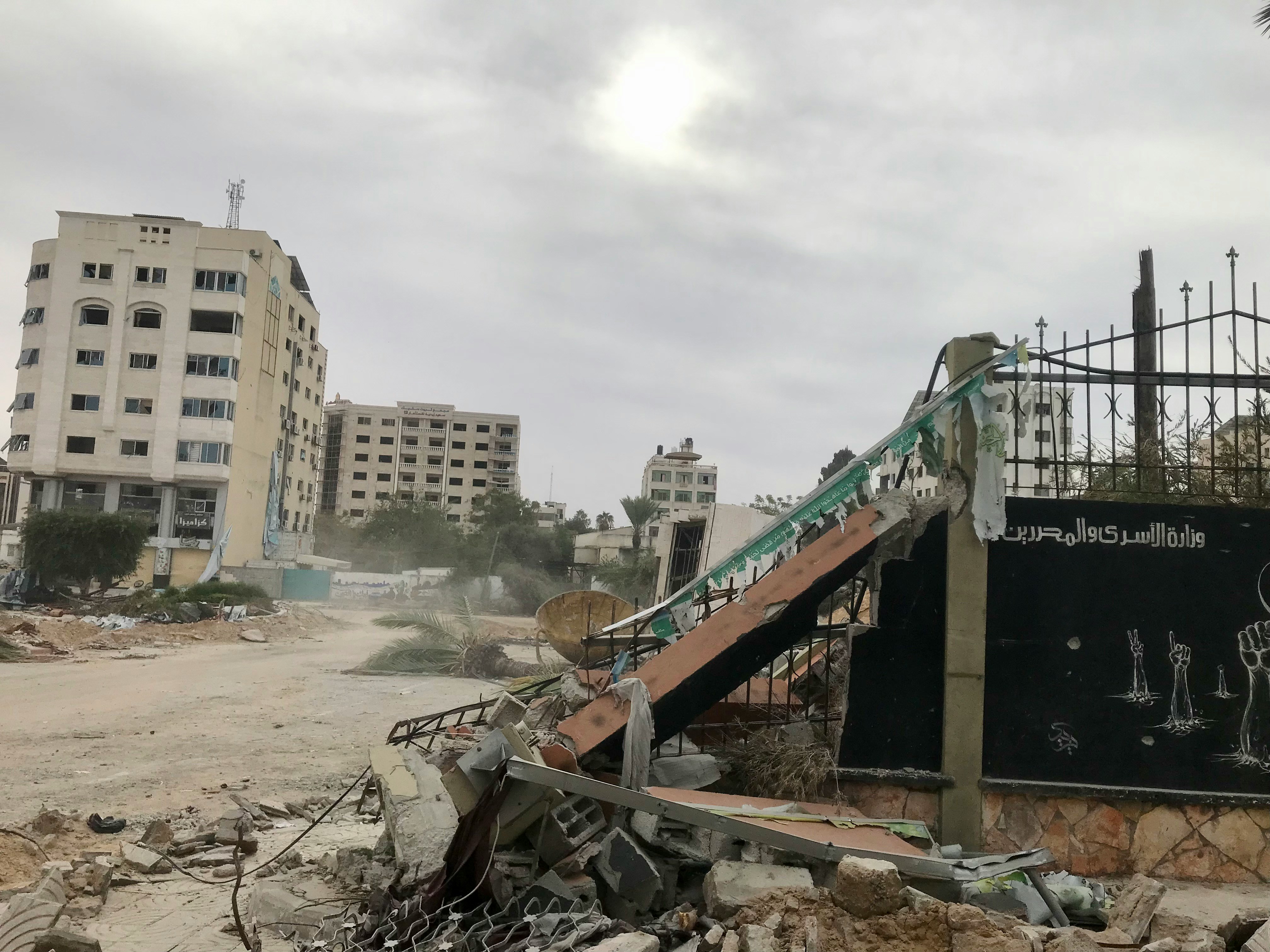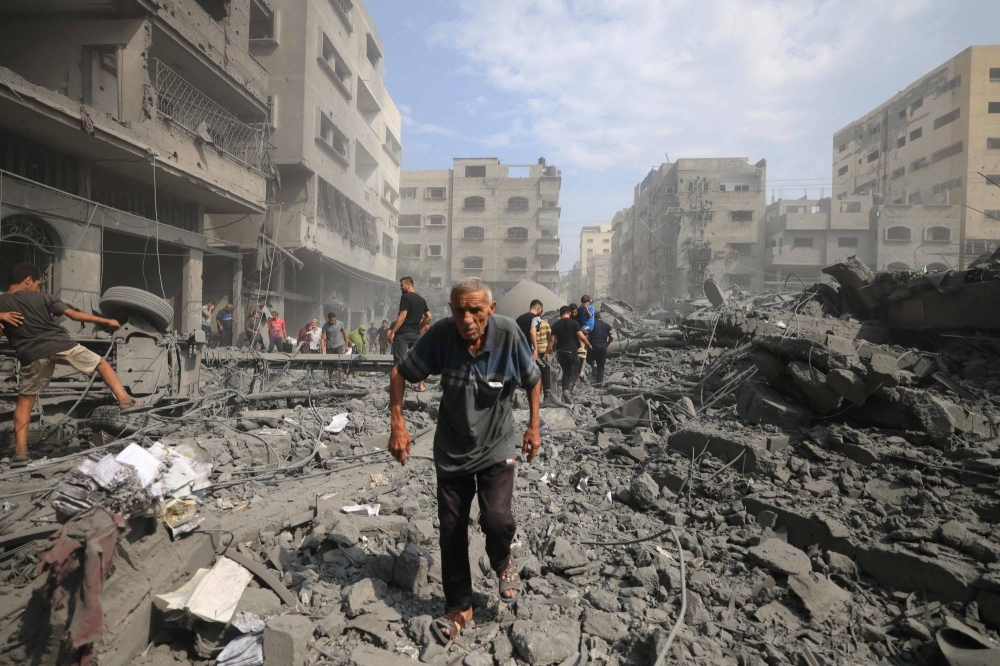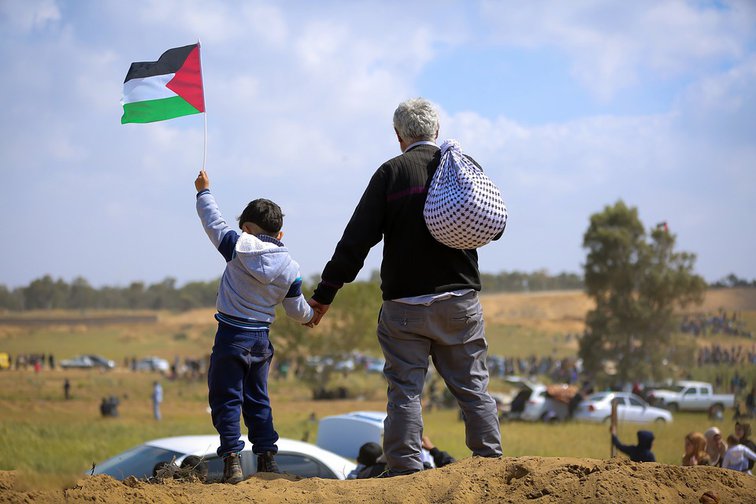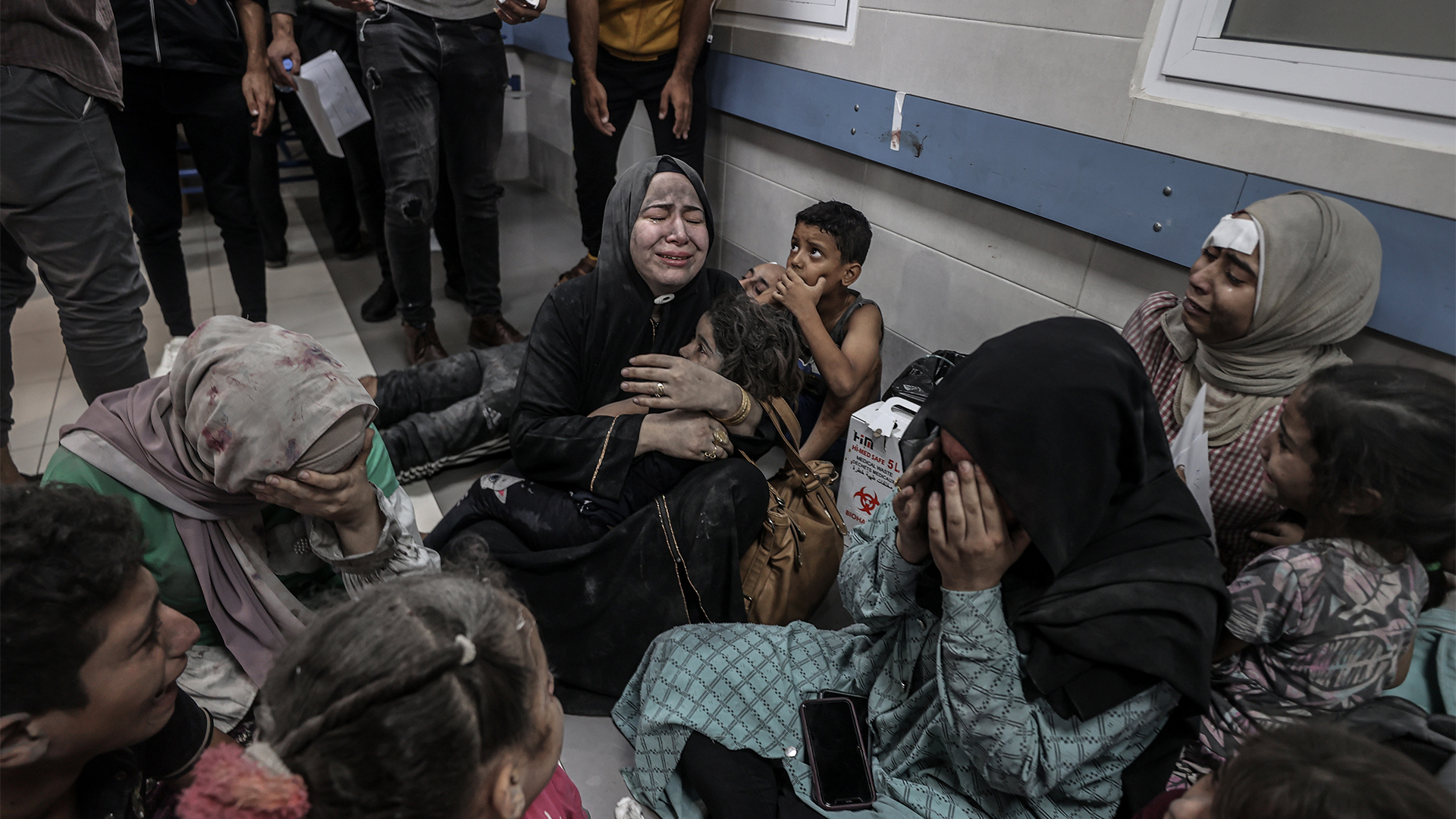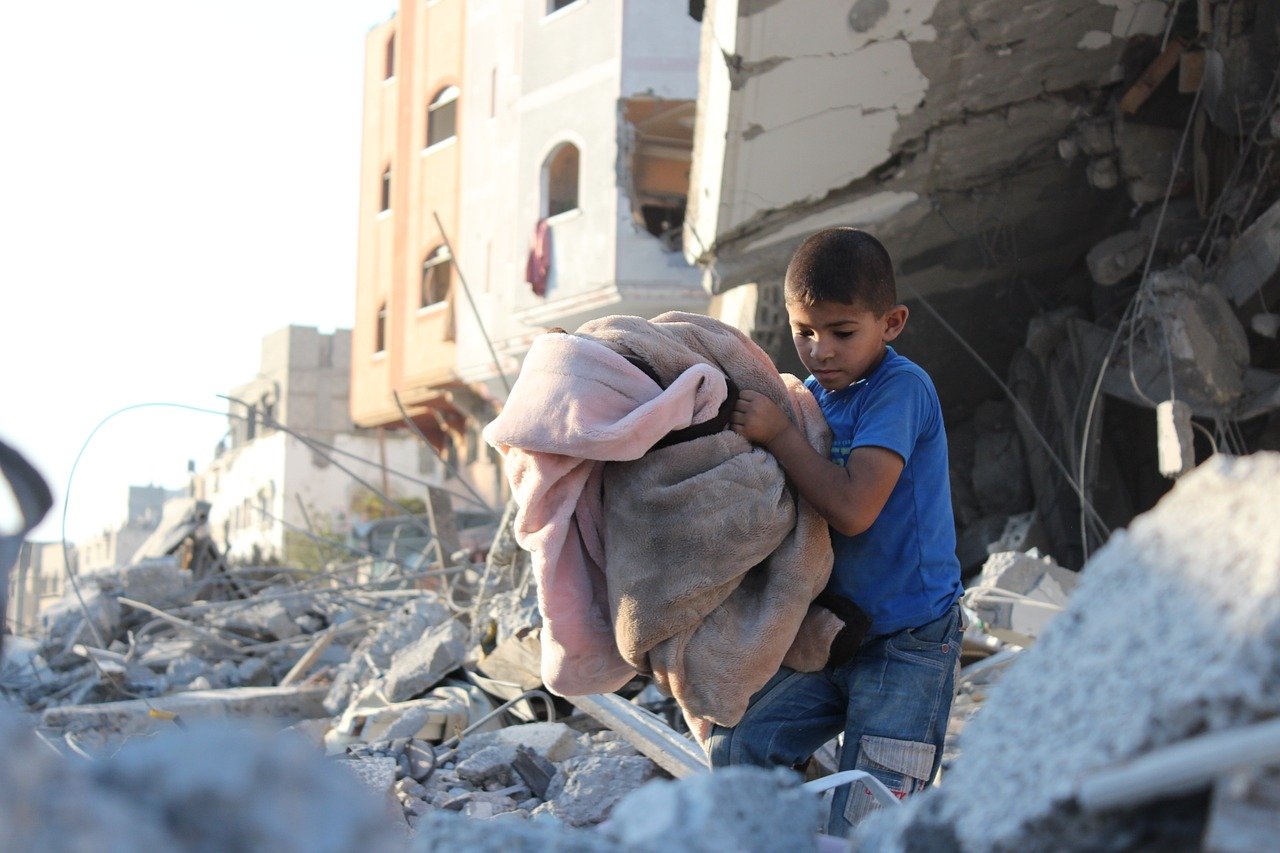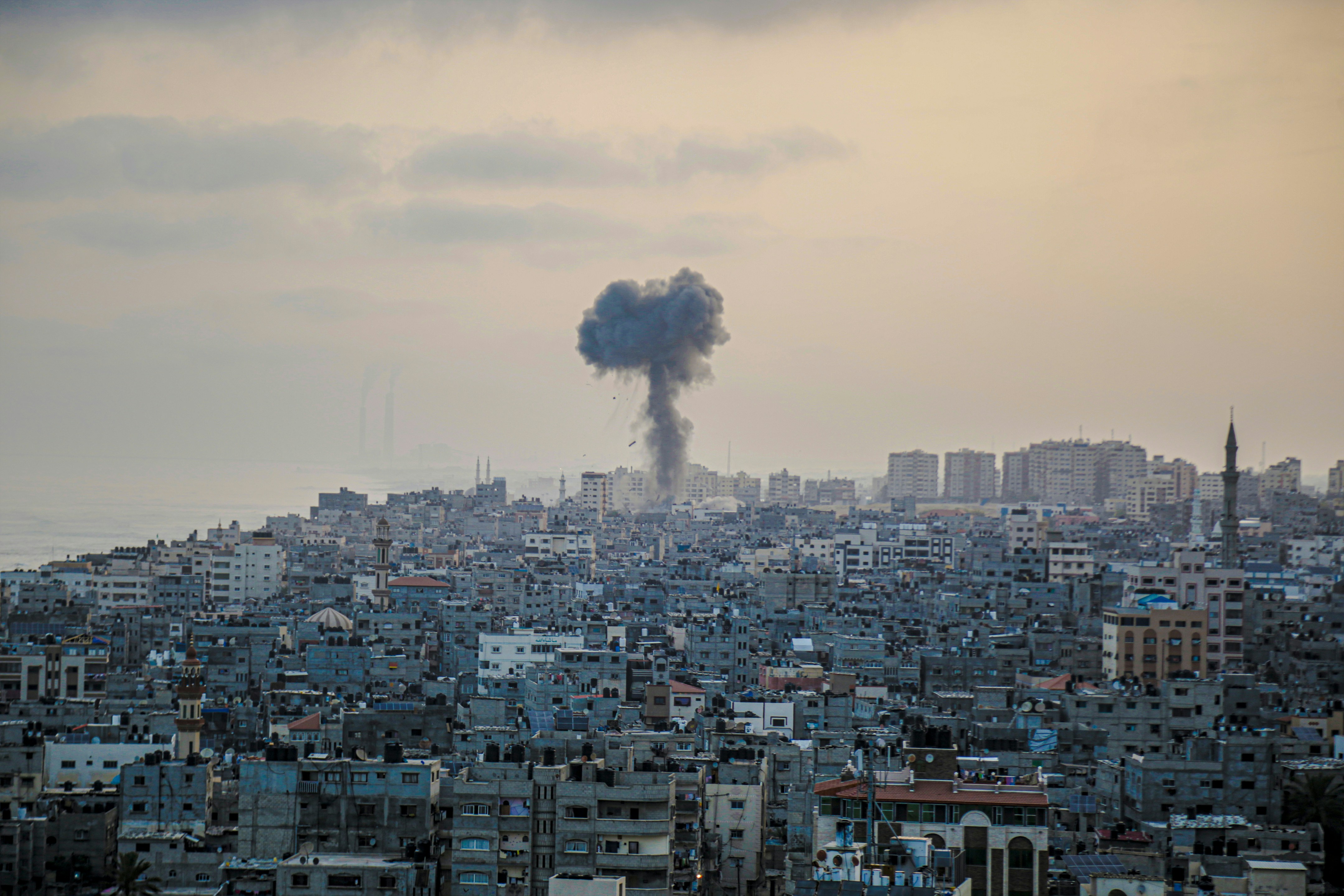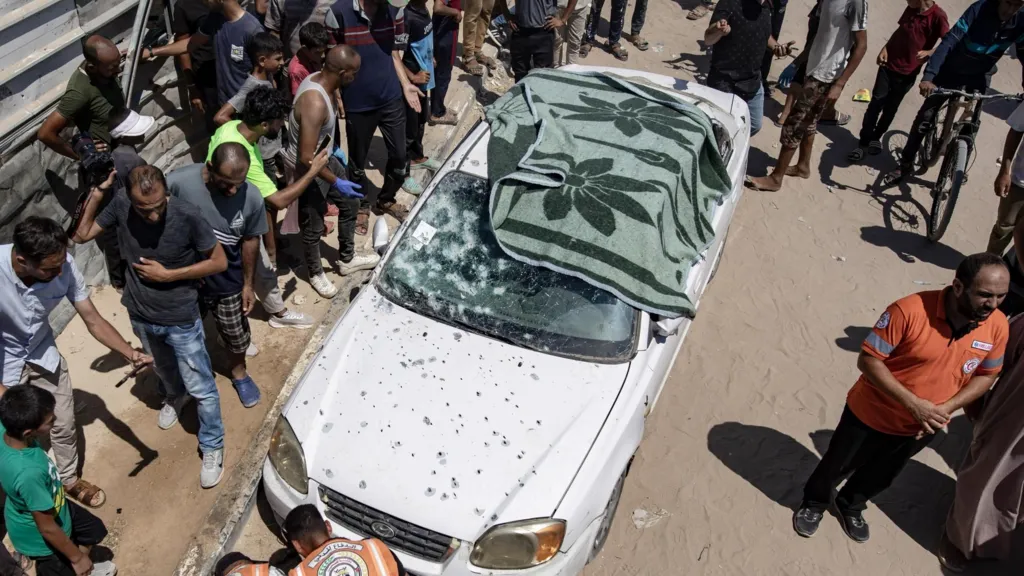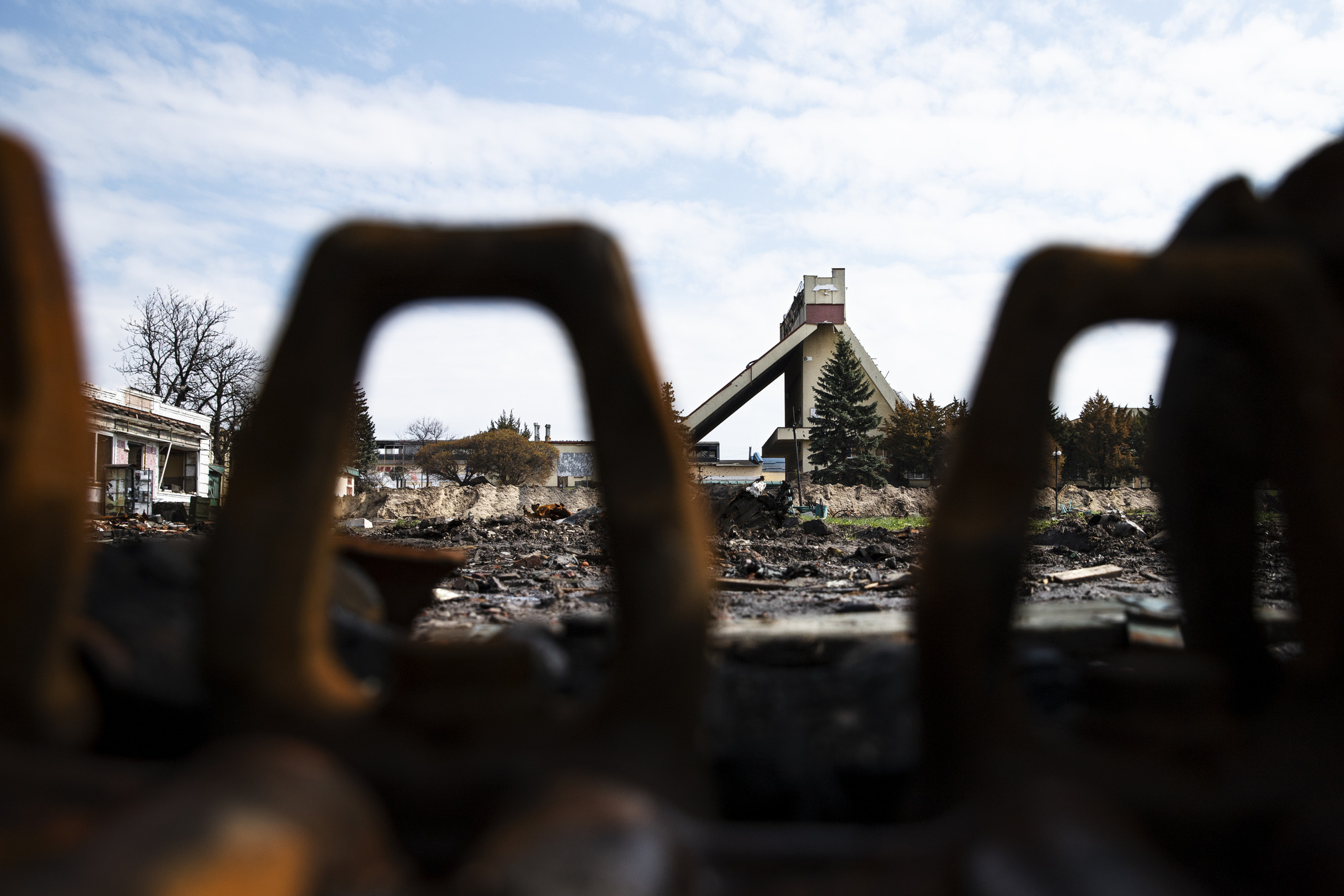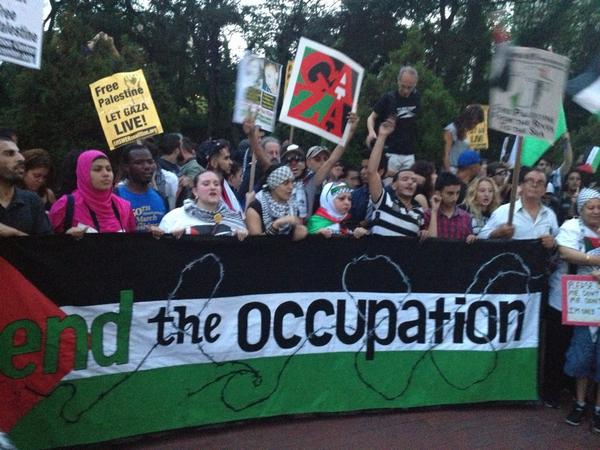It seems amply clear that the current Palestinian leadership, i.e. the Palestinian Authority (PA) led by Chairman Mahmoud Abbas, neither learns from its own blunders nor from other people’s blunders. This is really a gigantic disaster befalling the Palestinian people and their enduring just cause.
How else can one relate to the unrelenting illogical insistence of the the whole world on accepting the U.S., Israel’s guardian-ally, as “mediator and honest broker” between us and our murderous tormentors and grave-diggers, Israel?
Read Also: The US and Israel: The dog versus the wagging tail.
Indeed, one doesn’t have to be an expert on American foreign policy in the Middle East to know that the U.S represents the problem, not the solution, given its long-standing embrace of Israeli fascism and expansion. After all, it is the US that not only enabled Israel to actively pursue its lebensraum policy at the expense of its neighbors but consistently shield it from any accountability or international condemnation.
Today, the U.S. administration is criticizing Palestinian “unilateralism” in reference to desperate PA efforts to get the UN Security Council to recognize Palestinian statehood and agree on a deadline for ending Israel’s Nazi-like occupation.
Well, we all know that the U.S. is being pornographically hypocritical when it accuses the virtually vanquished Palestinians of acting unilaterally as if its spoilt nefarious daughter, Israel, were ever acting in full conformity with international law.
Well, Mr. Abbas and Mr. Ereikat: Don’t be too gullible, too sheepish. Ask your American interlocutors, e.g. Mr. John Kerry, the following questions:
Since when did Israel ever behave bilaterally rather than unilaterally?
Was the usurpation of Palestine and expulsion of its indigenous people at the hands of Jewish terrorist gangs hailing from Eastern Europe, a bilateral or unilateral act?
Was the annexation by Israel of East Jerusalem and the Golan Heights a bilateral or a unilateral act?
Was the building of hundreds of Jewish settlements in the West Bank and East Jerusalem as well as the transfer of 600,000 Jewish settlers to live on a land that belongs not to them a bilateral or unilateral act?
Was the wanton demolition of some 30,000 Palestinian homes by Israel a bilateral or a unilateral act?
Was the annexation of the bulk of the West Bank and East Jerusalem a bilateral or a unilateral act?
And what about this ugly structure, called Separation wall, which resulted in the theft of thousands of acres of private Palestinian land? Was it a bilateral or a unilateral act?
I could go on and on and on listing America’s hypocritical and duplicitous stands on Palestinian grievances and Israeli crimes. Indeed, the U.S dishonest stand on the Palestinian plight has only been consistent in its moral depravity. Indeed, hypocrisy in its most brazen form has always been and continues to be the modus operandi of American policy toward the Palestinian issue. I know it is politically incorrect to speak in this tone. However, truth must not be another victim of the dark evil embrace between the U.S. and Israel.
But morality is not and has never been part of American politics or policies, especially foreign policy. This is why the world looks so ugly, so gloomy and so unjust.
The U.S. is insisting that only a “negotiated” settlement to the Palestinian issue would be acceptable to the U.S.
Read Also: The Palestinian Authority: confused, frustrated and corrupt
In other words, Israel must always have the final say as to any possible peace deal with the Palestinians.
But since Israel would never ever end its occupation or dismantle the settlements, let alone allow for the repatriation of the refugees, it means there can be no negotiated settlement unless the Palestinians agree to surrender to Jewish Nazism. But that will never happen as Muslims, including the Palestinian people, would never allow the Ramallah leadership or any other leadership to commit adultery with the honorable Palestinian cause.
Let’s be honest. The purportedly honest American broker or mediator is neither honest nor a broker or mediator. The proverbial American judge is simply telling the insolent rapist (Israel) and the vanquished rape victim (the Palestinians) to sort it out amongst yourselves. Do we have to be the smartest humans on earth to understand the implications of this brutal ugliness?
It is tantamount to a total American embrace of Israeli fascism. It means that the American stance is actually Israel’s stance. It also means that that the U.S. would never accept or condone any settlement that Israel doesn’t accept.
That is why the Palestinians need to have a moment of truth with themselves.
And the message they need to internalize is that they would have to wait ages if they continued to put their trust in the U.S. to pressure Israel to walk in the path of peace.
Let us face it. Israel will never walk in the path of peace unless it is pressured and bullied to do so. However, Israel would never ever walk in the path of peace as long as it continues to receive nuclear submarines from Germany and the most advanced fighter jets from the U.S.
In a nut shell, America can’t and won’t exert any meaningful pressure on Israel to end its N-a-z-i-like occupation. We all know that Israel controls the American government or at least controls those who control the American government. Israel is intoxicated by its arrogance of power and Talmudic insolence. And the U.S., Israel’s guardian-ally, is not in a position to be an honest mediator and to impose a deal on Israel or even convince her to allow for one that would give the Palestinian a semblance of justice.
What should be done?
We must go ahead with our efforts at the U.N. Security Council, irrespective of American threats to veto any resolution favorable to the Palestinian cause. At least casting the veto would embarrass America itself and its treacherous Arab allies (they are not actually allies but cheap slaves and puppets as we all know).
We Palestinians must be confident of our inevitable triumph over Zionism and its evils. Yes, it may take time, but eventually Zionism won’t live forever in a sea where hundreds of millions live.
Khalid Amayreh is a Palestinian journalist and political commentator , we lost him on account of natural reasons on 12th of July last year in the Occupied Palestine
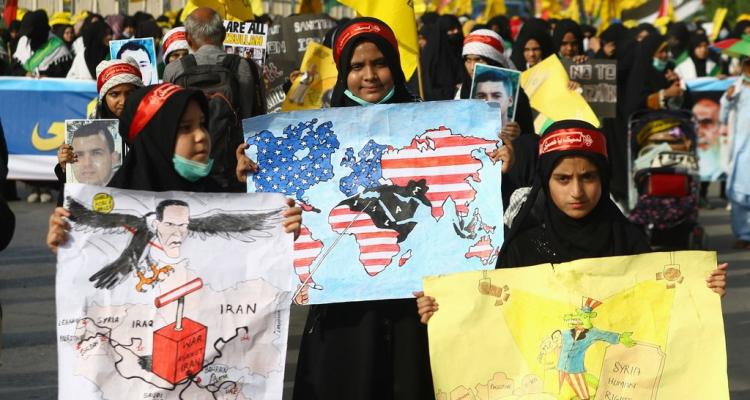




 Featured9 months ago
Featured9 months ago


 Featured10 months ago
Featured10 months ago


 Featured2 years ago
Featured2 years ago


 Featured4 years ago
Featured4 years ago


 Featured3 years ago
Featured3 years ago


 Featured10 months ago
Featured10 months ago


 Featured2 years ago
Featured2 years ago


 Featured4 years ago
Featured4 years ago
